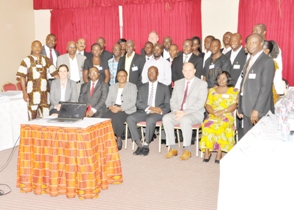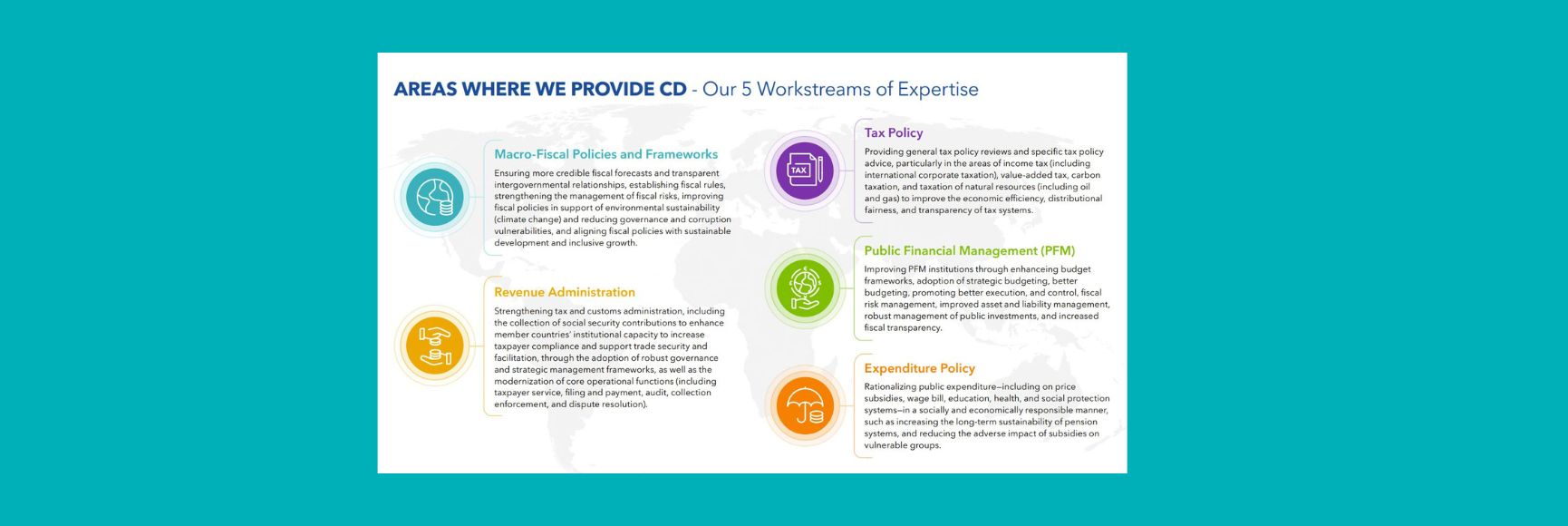Posted by Yasemin Hurcan and Florence Kuteesa

A workshop on strengthening fiscal reporting and transparency within Anglophone West Africa took place on September 23-25 in Accra, Ghana.[1] The 30 participants in the workshop were exposed to the latest developments and international standards of fiscal reporting and transparency including the IMF’s proposed new Fiscal Transparency Assessment (FTA) Code, which will be launched in the spring of 2014. They also examined the practices and gaps in the region and suggested measures to enhance the attainment of basic practices as articulated in the FTA Code.
The Deputy Minister for Finance of Ghana, Hon. Cassiel Ato Forson, underscored the critical role of fiscal reporting and transparency in sustaining economic growth within the region and strengthening fiscal institutions. He welcomed the IMF’s strong leadership in driving the reform agenda. In addition, the IMF resident representative, Mr. Samir Jahjah, and Dr. Nelson Magbagbeola, from the Economic Community of West African States (ECOWAS) Secretariat in Abuja, Nigeria, emphasized the need to strengthen fiscal reporting practices as a prerequisite for the successful harmonization of public financial management within the region.
Participants were exposed to the core objectives and principles of the new FTA Code, the IMF’s Government Finance Statistics Manual (GFSM) 2001, and the International Public Sector Accounting Standards (IPSAS). The relevance of these standards to the development of improved fiscal reporting and transparency was discussed. In addition, the participants examined the work on the harmonization of fiscal data in the region spearheaded by ECOWAS.
Specifically, the workshop provided an opportunity for participants to enhance their understanding of the concepts and practices of three key dimensions of fiscal disclosure under proposed FTA Code:(i) fiscal reports in the form of fiscal statistics and accounts, (ii) fiscal forecasts in the form of fiscal strategies and budgets; and (iii) fiscal risk analysis in the form of fiscal risk statements and other risk management tools. The presentation of the Code highlighted the principle of a graduated set of practices, namely: basic practices, good practices and advanced practices - on a path towards full compliance with international standards.
The participants welcomed this graduated set of practices as a useful framework for benchmarking and identifying gaps in existing practices. They were able to determine where their current fiscal reporting practices stand relative to the three levels of practice. FAD also shared a heat map – prepared by the IMF’s Regional PFM Advisor for Anglophone West Africa - demonstrating the gaps in key dimensions of fiscal reporting and transparency practices within each of the participating countries. There was acknowledgement that while the participating countries were at different stages of fiscal reporting and transparency, none of them had attained the basic practice level as required by the FTA Code. This allowed the participants to share their country specific experiences, and exchange views on the challenges they face in enhancing their current practices.
The coverage and quality of fiscal reports in the region generally fall far below the basic standards recommended by the FTA Code. The institutional coverage of fiscal reports is narrow covering mainly budgetary central government operations. For example, Ghana and Liberia, have significant numbers of extra-budgetary funds that are not covered in their fiscal reports. In addition, disclosure of information on financial flows and stocks is incomplete in most of the countries. For example, Sierra Leone, Liberia, and Nigeria do not report on their most valuable nonfinancial assets (natural resources). Furthermore, the analysis and management of fiscal risks is underdeveloped within the region. Not all countries have established robust mechanisms for identifying and monitoring fiscal risks, and where such mechanisms exist, the quality and strategic direction of fiscal risk analysis is variable.
Notwithstanding these constraints, the workshop identified some significant improvements in budget and accounting systems and enhanced access to budget information. The governments of Nigeria and Liberia, for example, enacted the Fiscal Responsibility Act in 2007, and the Public Financial Management Law in 2009, respectively. Considerable progress has also been made in implementing financial management information systems (FMIS) in the region, which has contributed to recent improvements in fiscal reporting as well as public access to budget information. However, irregularities of in-year fiscal reporting, backlogs in end-of-year fiscal reporting, and limited progress in GFS reporting remain critical challenges.
Looking ahead, the participants stressed the need for coordinated reform strategies to help their governments address the existing challenges and attain at least the basic practices set out in the FTA Code. They identified key reform areas that include:
- Enhancing policy-makers’ awareness and understanding of the benefits of improved fiscal reporting and transparency, and their capacity to analyze fiscal policy issues.
- Strengthening the role of the budget and accounts committees of the legislature in overseeing fiscal policy and demanding better reporting practices from the executive.
- Revising countries’ legal framework for budgeting and public finance to provide for enhanced and coordinated fiscal reporting practices. In countries such as Nigeria, where appropriate legal frameworks are in place, the participants stressed the need for strict enforcement of sanctions to promote compliance.
- Enhancing the disclosure of fiscal risks by building capacity in responsible agencies; strengthening the fiscal risk statements in the national budget, and the treatment of critical fiscal risks such as expenditure arrears and domestic debt.
- Strengthening institutional coordination arrangements - including the introduction of data dissemination calendars, and building capacity for the collection and dissemination of fiscal information between the finance ministry and other government agencies.
- Rolling out the FMIS to all government agencies, and strengthening the interface with other fiscal information management systems such as revenue collection, personnel and wage management, and debt management.
In light of these requirements, sustained TA is likely to be required to support the improvement of fiscal reporting and transparency in the region. The workshop identified an immediate need for assistance to support the design and adoption of standard reporting templates, as well as the prioritization and sequencing of reforms, especially in the area of enhancing institutional coverage. Additional support would be required in the following areas: (i) strengthening fiscal risk analysis and management; (ii) capacity building in finance ministries and other agencies; (iii) development of a data portal to support the consolidation of fiscal reports; (iv) harmonizing the chart of accounts within general government; and (v) strengthening GFS reporting practices.
[1] The countries participating were The Gambia, Ghana, Liberia, Nigeria and Sierra Leone. The workshop was organized by the Fiscal Affairs Department, IMF, and sponsored by the Japanese government-funded technical assistance program.
Note: The posts on the IMF PFM Blog should not be reported as representing the views of the IMF. The views expressed are those of the authors and do not necessarily represent those of the IMF or IMF policy.




